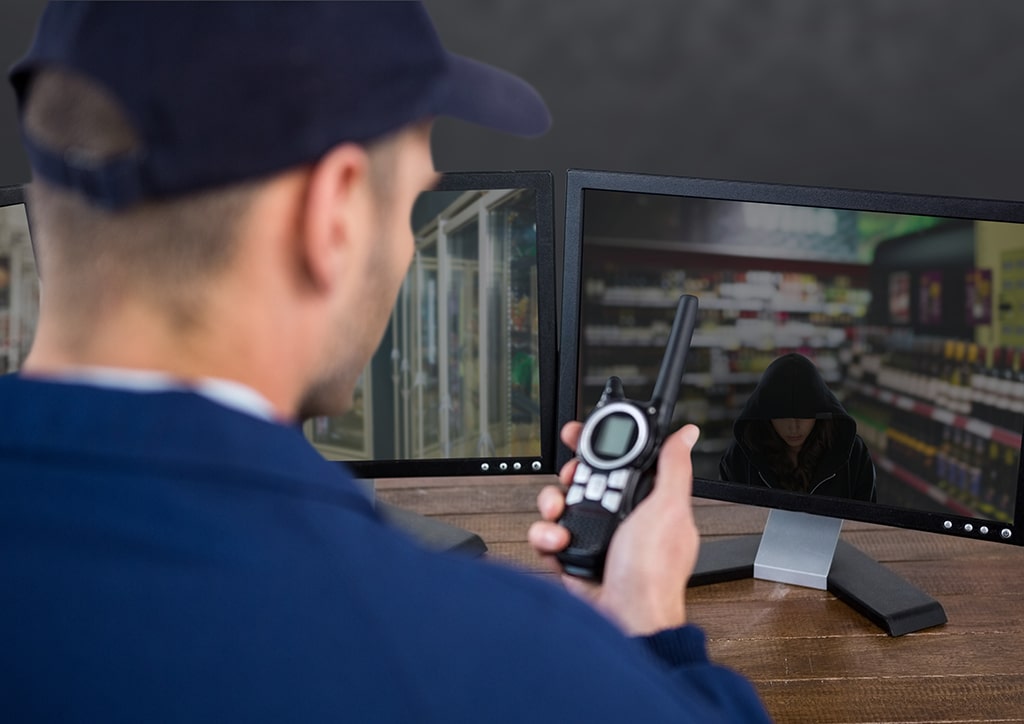Retail security has seen a tumultuous few years, which has led to the retail industry rethinking its relationship with security and how it works – including interesting new regulations.
Back during the days of COVID, we noted how the retail sector was becoming a new source of client contracts for security firms, as more and more stores faced issues with their pandemic requirements (wearing masks, social distancing, etc.) and even attacks based on new rules. Hiring additional security guards offered a reasonable solution for those times.
However, as the pandemic faded and regulations eased, retail problems remained. The rise of violence and aggressive behavior persisted for reasons that aren’t entirely clear. New trends of mass shoplifting created problems for stores in cities across the country. And high inflation puts everyone on edge in the grocery store, creating a higher risk of feuds and fights.
These factors have pushed the retail and security industries closer than ever before. Here are some of the side effects we will see in 2023, which continue to present both opportunities and big changes.
Retail Security Required by Law?
Retail violence is poor for workers, the economy, real estate, and general neighborhood conditions. It makes sense, then, that governments are starting to take a look at the issue and consider responses of their own – including some permanent legislation to address the danger. The best example right now is a bill proposed by an Illinois politician, which has made it to the Rules Committee (a step further than the bill made last year, when it was first proposed).
This Illinois bill would require certain kinds of businesses to hire a baseline of security when they are open to the public. It’s designed to only affect Chicago, and only apply to certain kinds of businesses, including grocery stores, gas stations, and pawn shops.
The idea of security guard laws is very new. We still don’t know how they would be enforced, what sort of armed guards would be required, or how retailers would pay for guards if suddenly required to. We also don’t know how the law would “source” security jobs to firms with available laws. But it’s undeniably a growing part of the discussion on what to do about retail crime, and it could be a new dimension of work for security guard companies.
Some Store Chains Are Setting Their Own Regulations
Certain stores aren’t waiting for laws. They’re setting their own regulations requiring their storefronts to hire armed security guards to prevent theft and violence. So far, it’s more common in the Midwest, where chains like Hy-Vee and QuickTrip have implemented new guidelines for security.
These company-wide regulations are an interesting mix for security companies. Some apply to all stores. Some rules limit requirements to only certain stores based on risk factors. QuikTrip in particular has a long list of must-haves for the security guards they hire, including at least three years of experience in the army, a gun license, and certification in everything from pepper spray to first aid. Since they are hiring their guards directly to work at the stores as full-time employees, QuickTrip’s approach could sap the most qualified guards away from local security firms.
Unions Also Have Their Say
It’s no surprise that unions have also taken notice of retail shopping problems and the risks that they pose to retail workers. While not all retail workers are in a union, those with unions are seeing changes. The United Food and Commercial Workers union, for example, negotiated a new contract that gives all its workers the right to defend themselves if they’re attacked by a customer.
That poses new difficulties for retailers and provides an additional reason to incorporate security forces to prevent shoppers and workers from coming to blows. Other unions may be inspired to encourage employers to hire security as protection, another common idea workers have raised.
New Hours Can Affect Security Shifts, Too
Hiring security guards is only one way that retailers are dealing with the changes. Some stores also opt to adjust their hours, closing the stores down completely during hours of low traffic when theft may become more likely. This can also affect security guards that work at these stores. They may have their hours cut, reducing income for their firm. Or the retailer may ask to switch to a new model that involves more outdoor patrols when the store is closed to help prevent break-ins, vandalism, or problems with the homeless.
Conclusion: Security in the Retail Industry
Retail stores of many kinds have seen issues with violence, theft, and crime on the rise in the past years. Many are responding with new efforts focused on security. This brings the potential for security guard firms looking for new partners, as well as the possibility of a growing competitor when retailers choose to hire their own guards.
Local governments are also starting to respond with new security requirements that could change the nature of the industry entirely. There’s still a lot we don’t know yet about the long-term effects on retailers or what it means for the security guards working there, but a time of uncertainty often yields new opportunities.






